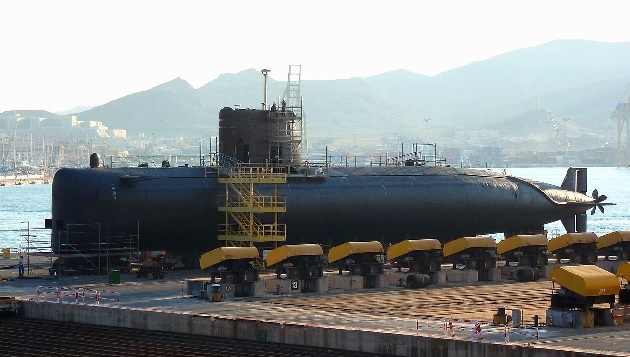Pakistan has always maintained that its nuclear program is India specific and it has developed its nuclear arsenal as a deterrent and not with the intention of engaging in a nuclear war. Despite this, Pakistan has specified since long, that in case of an attack from India, Pakistan would be the first to use its nuclear assets.
This doctrine has ensured the balance of power in the region and has enabled relative peace. This balance, however, has now been disturbed when India conducted the test launch of the K-4 submarine-launched ballistic missile (SLBM). The K-4 SLBM was launched from INS Arihant, which is said to be an indigenously developed nuclear-powered submarine, though with the help of Russia. According to reports, the test was conducted with full operational configuration. The missile is capable of carrying nuclear and conventional warheads with a strike range of up to 3,500km. As a result of this test India has acquired second strike capability, which allows the host to absorb the adversary’s first strike and still be able to hit back. The most efficient second strike comes from submerged platforms like the submarine, which operates underwater and can remain undetected.
The fact that INS Arihant is a nuclear powered submarine, allows it to stay under water for considerably longer period of time that the average submarine. India has not remained shy in this matter and has made its plans clear of developing a fleet of nuclear powered submarines which will be able to carry nuclear warheads. This development is a serious threat for the region as it has disrupted the balance of power. This matter becomes even more serious in light of the importance of the Indian Ocean, which is the third largest oceanic division of the world and it controls strategically important sea lanes of communication (SLOCs) which link the Middle East, Africa and South Asia with Europe, East Asia and the US. In addition to the above almost 80 per cent of the world’s energy trade takes place through the choke points of this region.
As a consequence, the nuclearisation of the Indian Ocean is a serious development, which poses a threat to the security of around 32 littoral states of the region, including Pakistan, Sri-Lanka. In addition to this, India seems to be ramping up military modernization and is considerably expanding its naval capabilities in the name of enhancing security against the growing influence of China. Despite such claims by the political experts in India, it is evident that all these moves are being done to project itself as the dominant power in the region. Pakistan needs to bear the threat in mind especially when India has made its intentions very clear against Pakistan. This volatile region where three nuclear powers exist, the only way to maintain peace and to avoid a conflict is by maintaining a balance of power.
This balance was established when Pakistan became a nuclear power in response to India’s nuclear capability. Ever since then, Pakistan has effective undone all Indian measures to upset this balance. As a result Pakistan’s existence has not been challenged and the region has remained conflict free for a long time.
Now the situation has changed, the balance has been disrupted and Pakistan must once again, move to restore it in order to restrict India from brewing up a new conflict. Pakistan must realize that India concocted the likes of ‘Cold Start Doctrine’ and started actively interfering in Pakistan to destabilize it, while Pakistani nuclear deterrent was still strong but now when India has developed second strike capability, it might to actively and openly move against Pakistan. In light of this it is important that Pakistan develops second strike capability so that India does not have any more bright ideas to coerce Pakistan and the regional peace remains intact.


